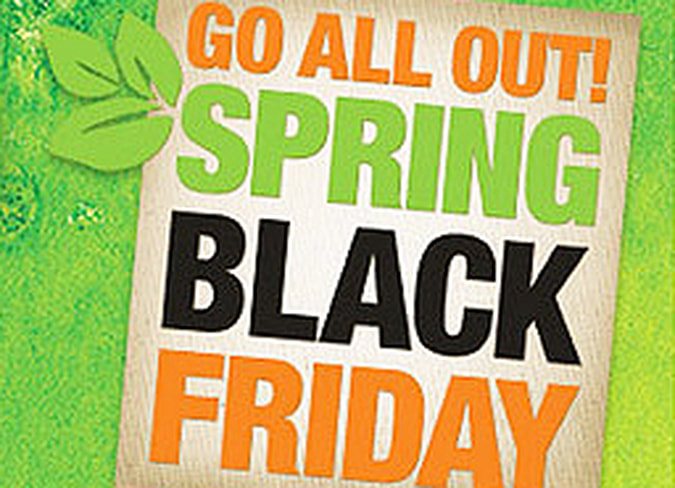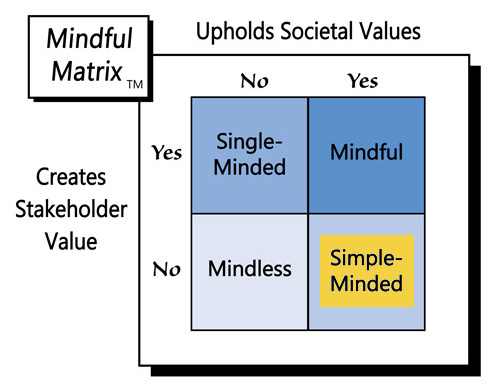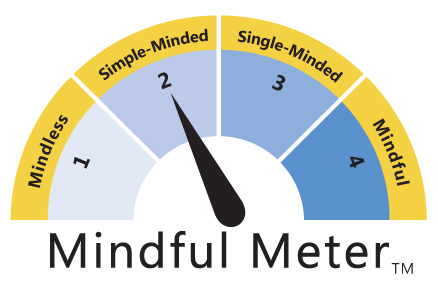Yes, it is April and those are Black Friday emails. Ironically, two large retail competitors have independently and simultaneously selected the same out-of-season promotion: “Spring Black Friday.” The surprising advertising adversaries are Home Depot and Lowe’s.
When you think “Black Friday retail,” you might think electronics (e.g., Best Buy) or clothing (e.g., Macy’s). So, why are the two home improvement giants slashing prices on patio furniture in April? Well, the easy answer is they’re trying to move merchandise. Like any large, publicly traded retailer, they’re under pressure to meet projections for sales and profit. Analysts’ expect Home Depot’s earnings per share (EPS) for the current quarter to be at least 1.33, while Lowes’ estimate is a more modest but still challenging 0.84.
But why have both retailers turned to Black Friday sales in April? Won’t consumers reject the promotional ploy out-of-hand, just as they would if Walmart and Target offered back-to-school sales in May? The key is that Black Friday is often used to describe more than just the deep discounts the day after Thanksgiving. As most of us have noticed over the past few years, retailers have aggressively expanded the super sale’s timeframe from one day to Black Friday Weekend, Black Friday Week, and even an entire month of Black Friday deals.
Just as Pavlov taught dogs to associate food with a ringing bell, retail has conditioned consumers to salivate about amazing sales when they hear or see “Black Friday.” Does that mean that stores are treating people like animals? Although it's true that some consumers act wildly on Black Friday, the answer is “No.” There’s nothing inherently wrong with creating associations between disparate stimuli, especially if those associations simplify communication and ease the action that consumers want to take.
However, calling a variety of sales throughout the year "Black Friday" sales is not a sustainable approach to promotion. Pavlov could ring a bell every day, several times a day, without weakening the association between the bell and food because dogs continually need to eat, and Pavlov could consistently provide food to fully satisfy that need.
On the other hand, humans realize that firms cannot possibly offer their very best sales all the time. Even if we don’t have an accountant’s understanding of net income, we recognize that retailers need to make money, and selling products for ridiculously low prices is not a long-term path to profitability. Consumers don’t require routine, incredible sales on power tools and appliances in order to survive, but retailers need healthy profit margins most of the time in order to remain solvent.
So, if retailers extend Black Friday sales throughout the year, those discounts are probably not as deep as what we we’ve been conditioned to expect from the Friday after Thanksgiving. Consequently, people’s expectations of unbelievable purchases won’t be met and Black Friday’s powerful original association will be watered down and eroded. In other words, the more retailers ring the Black Friday bell, the less consumers will salivate about special sales.
It’s unlikely that the continual dilution of Black Friday, spreading the same name over more sales events throughout the year, will create significant stakeholder value for marketers or consumers. Does Spring Black Friday also compromise societal values? Probably not, provided that retailers don’t deceive consumers in any specific ways or offer shoppers unfair value for any particular purchases. Spring Black Friday, therefore, seems like a case of “Simple-Minded Marketing.”
Learn more about the Mindful Matrix and Mindful Meter.
Check out Mindful Marketing Ads and Vote your Mind!




 RSS Feed
RSS Feed